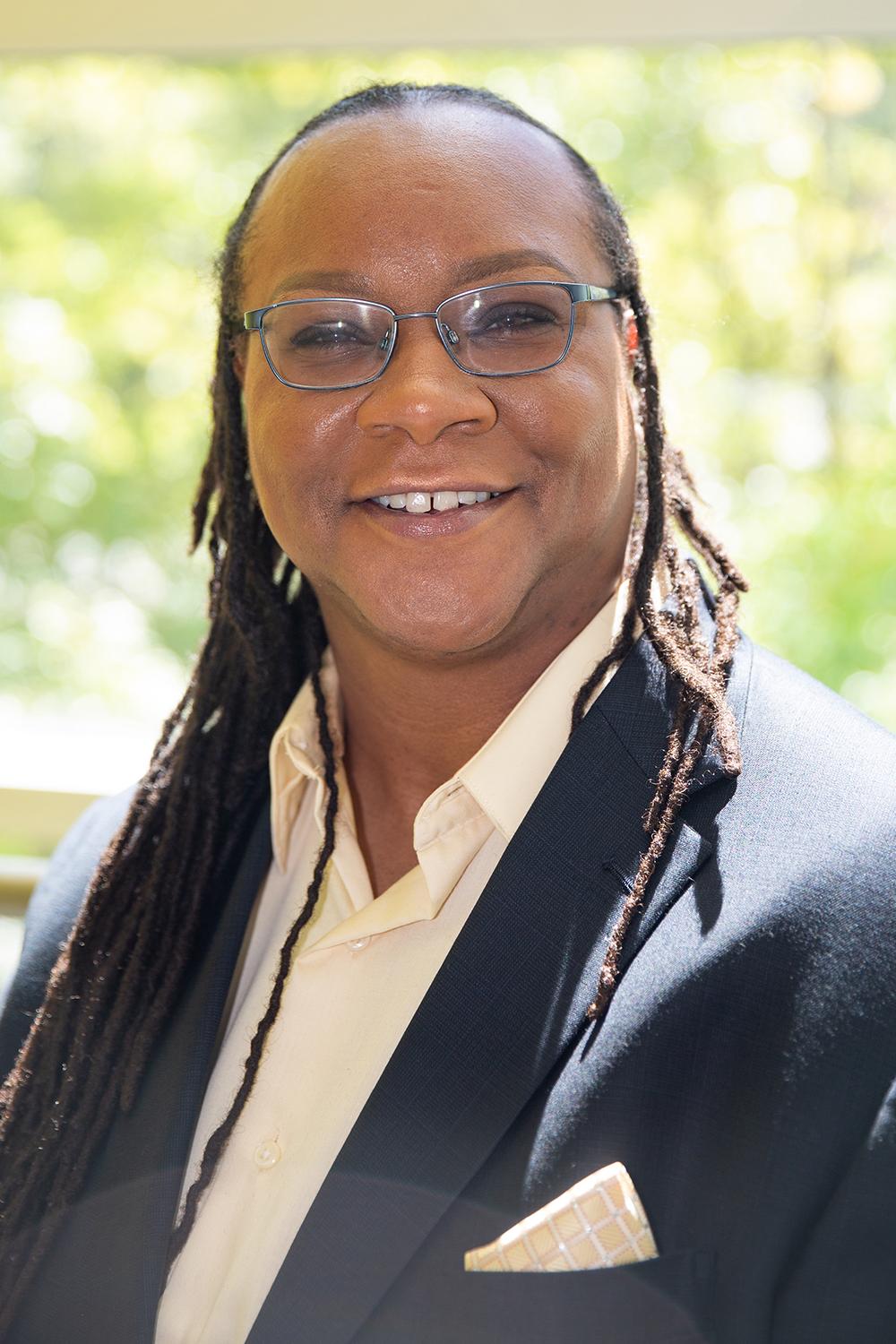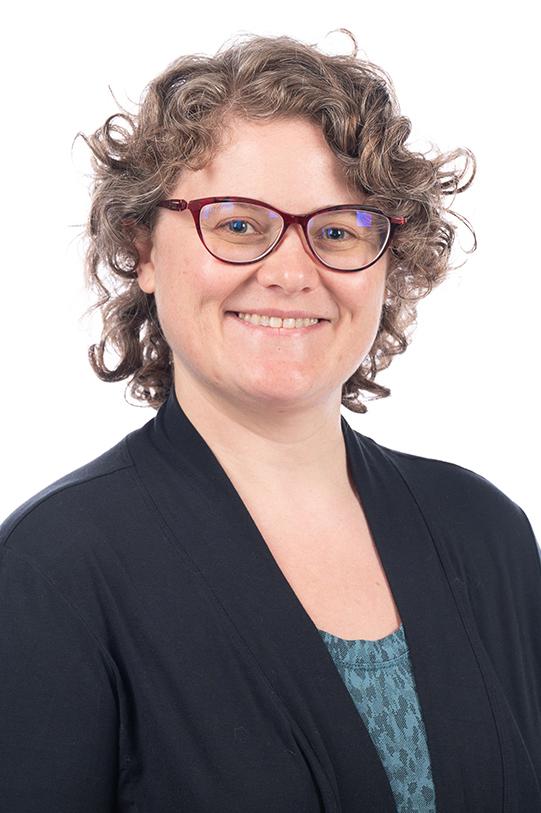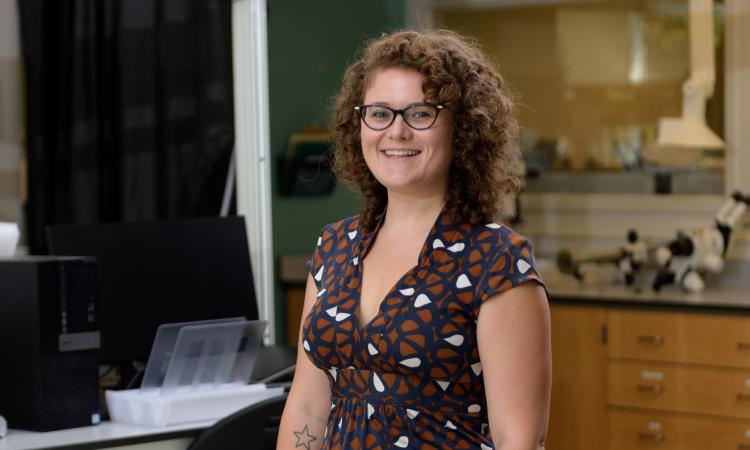BME, ECE, ME early career professors will use the five-year grants to study the brain, advance thermal battery technology, and more.
Foundations are crucial. They provide the underlying structure to construct a building or a career.
For five faculty members in the Georgia Tech College of Engineering, the National Science Foundation (NSF) is helping fortify that structure with its most prestigious support for early career researchers.
They’ve each received a Faculty Early Career Development Award from the agency this year, a highly competitive five-year grant designed to help promising scholars establish a basis for a lifetime of leadership in their field. Known as CAREER awards, the grants are for those who have the potential to serve as role models in research and education.
Meet the recipients and explore how they’ll use their grants for difference-making projects:
(text and background only visible when logged in)
Kelly J. Cross
Assistant Professor
Wallace H. Coulter Department of Biomedical Engineering
Cross was studying chemical engineering when she discovered her true passion: engineering education and making space in the field for any and every type of person. A scholar in the challenges for marginalized populations in engineering, Cross’s work on African American men and student stress has been widely cited. She also co-wrote a book on the experiences of LGBTQ college students in science, technology, engineering, and math.
Her CAREER award focuses on developing a more efficient way to teach engineering faculty members about inclusivity. Using an online gaming approach, Cross will work to increase faculty engagement with diversity, equity, and inclusion efforts and track the evolution of their attitudes and beliefs.
“The CAREER award is a foundational grant for my lab, supporting my research and teaching philosophies, helping me continue to train the next generation of engineering education researchers,” Cross said. “For me, it is recognition of the quality and value of my work so far. It’s also the result of years of hard work and difficult conversations to move the field of engineering forward.”


Eva Dyer
Assistant Professor
Wallace H. Coulter Department of Biomedical Engineering
Dyer’s work has blurred the line between machine learning and neuroscience. Her lab is at the forefront of advances in neural recording and gathering data. She said her CAREER award will help her address the next challenge: mapping what is happening between the neural activity that we never see and the complex behaviors that we seem to perform with ease — like drinking a cup of coffee.
Dyer will develop new machine learning tools to better understand neural computation or to compare neural activity between individuals, she said. The goal is to create dynamic models that can accurately depict the changing nature of the brain over time, whether as the result of aging or disease.
“The CAREER award is a great reflection of the work we’ve been doing to monitor large populations of neurons in different regions of the brain,” Dyer said. “With all these massive datasets we now have, it’s time for us to mine it — to make sense of it all.”
Shaolan Li
Assistant Professor
School of Electrical and Computer Engineering
Li’s CAREER will create a design automation tool that he said will address a productivity crisis in the semiconductor industry. His tool will help designers create analog integrated circuit designs for a range of systems using a LEGO-like plug-and-play approach. The system would use machine learning to improve designs and more quickly generate fabrication-ready mask layouts.
Analog integrated circuits are crucial components in modern electronics, enabling digital machines to interact with the real world by performing functions like sensing, signal conditioning, power delivery, and energy harvesting. Their importance is growing rapidly, especially in artificial intelligence, automotive and medical fields, and other next-generation applications.
“While digital circuits can be easily generated by one click nowadays, we analog designers are still using a manual design method that has not changed much in four decades,” Li said. “It is becoming a time-to-market and cost bottleneck for emerging technologies, and even worse, scaring younger generations away from pursuing an integrated circuit design career.
“I am very excited that this CAREER award provides the platform for us to investigate a tool that can bring radical changes to analog circuit design productivity and education. It is not only a vehicle to accelerate new technology development, but it will also create far-reaching impact on the competitiveness of the U.S. semiconductor industry.”


Akanksha Menon
Assistant Professor
George W. Woodruff School of Mechanical Engineering
Menon’s CAREER project focuses on the underlying technology for thermal batteries that could help buildings become less carbon intensive.
Currently, thermal loads — space conditioning and hot water, for example — account for half of the energy consumption in buildings. To match energy demand with supply, especially from renewables, a thermal battery can be used to store and release energy as heat. Thermochemical salt hydrates are promising as storage materials because they high energy density. However, these salt hydrates experience mechanical stress and hygrothermal instabilities that reduce their energy density as the thermal battery is charged and discharged.
Menon aims to provide a mechanistic understanding of the key factors governing thermochemical phase transitions and their impact on coupled heat-and-mass transport. That work eventually will enable the development of reversible thermal batteries with long-term stability to help decarbonize buildings.
“I am incredibly honored to receive an NSF CAREER award,” Menon said. “I remember attending the College of Engineering panel on writing a successful NSF proposal, wondering if I would be able to do this, and here I am with a CAREER award on my first try!”
Muthukumar’s project aims to establish foundational principles that will allow machine learning tools called deep neural networks to reach their full potential in high-stakes and resource-limited applications. How these tools perform remains poorly understood, she said, including why they’re good at making accurate predictions on previously unseen data and why they sometimes fail.
Without these principles, failure modes in deep neural networks remain unmitigated and unnecessarily costly to solve. It also means selecting the right learning architecture for a task involves a wasteful trail-and-error approach that requires repeated train-and-test cycles. Muthukumar will use mathematical tools from signal processing, information theory, and online decision-making to better understand deep learning technologies. She ultimately hopes to explain how modern machine learning techniques can successfully generalize and why they sometimes fail, paving the way for developing efficient and principled solutions.
“I am incredibly honored and excited to have won this award. I am looking forward to working with my amazing cohort of students to translate our ideas from simple toy models into neural networks,” Muthukumar said. “I am very grateful to NSF for supporting our efforts for the next five years.”

Related Stories

Making Sense of the Brain
Eva Dyer at the forefront of surge in computational neuroscience research at Georgia Tech.

Faculty Spotlight: Assistant Professor Akanksha Menon
Menon talks about what drew her back to Georgia Tech, where she earned her Ph.D., and her passion for research.